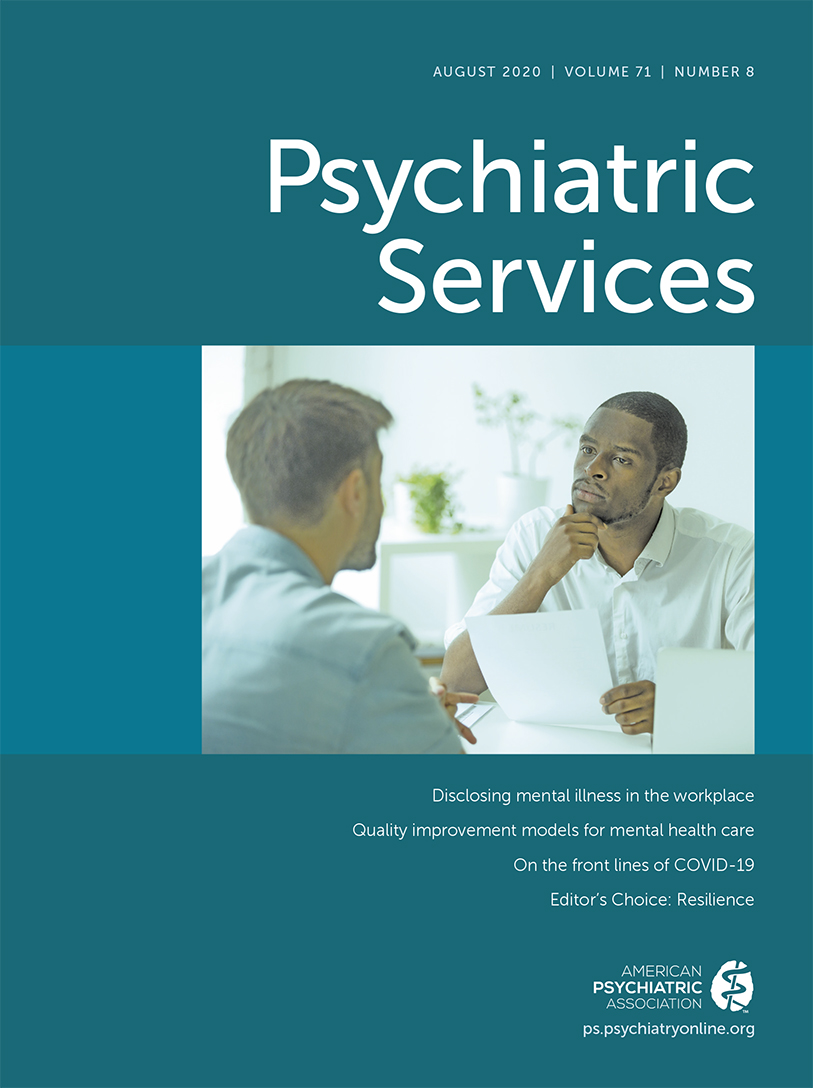Knowledge of HIV and HPV Among Women With Serious Mental Illness
TO THE EDITOR: Sexually transmitted diseases (STDs) can cause severe long-term health problems for women, including AIDS, cervical cancer, and pelvic inflammatory disease. Women with serious mental illness (e.g., schizophrenia, bipolar disorder) are eight times more likely than women in the general population to contract STDs (1). Women with serious mental illness have limited access to health education and support (e.g., safe housing and companionship, access to condoms, testing for and treatment of STDs) and engage in risky behaviors (e.g., multiple partners, unprotected sex) with greater frequency compared with women in the general population. In addition, African Americans have limited access to health care education and support, which makes African-American women with serious mental illness a particularly vulnerable group.
We assessed knowledge about human immunodeficiency virus (HIV) (2) and human papillomavirus (HPV) (3) among 89 women (56% [N=50] African American) with serious mental illness who were receiving outpatient care at a public mental health center in Augusta, Georgia. These two common STDs have serious long-term health consequences. Results were compared with the knowledge held by women in the general population about HIV (N=357) and HPV (N=413). In addition, we explored whether knowledge of HIV and HPV was associated with age, reported impulsiveness, or reported conscientiousness.
Women with serious mental illness had limited knowledge of HIV and HPV. They answered, on average, 64% correct on the HIV Knowledge Questionnaire. The HPV questionnaire has three sections—HPV general knowledge, HPV vaccination, and HPV testing. Participating women answered 55%, 51%, and 40% correct, respectively, on these sections. They knew significantly more about HIV than HPV (p=0.001).
Compared with large groups of U.S. women in the general population, our participants knew significantly less about HIV and were significantly less likely to have heard about HPV, HPV vaccination, and HPV testing (all p=0.001).
Knowledge about HIV and/or HPV did not correlate with age or reported impulsiveness or conscientiousness. Limitations of our study include a small sample size and lack of formal testing for literacy and numeracy in our population.
Women with serious mental illness, especially African Americans, remain a population at high risk of STDs with life-threatening consequences. They have limited knowledge about these diseases, including strategies to protect themselves. Research has demonstrated that interventions providing education combined with motivational exercises and assertiveness skills can lead to reduction in risky sexual behaviors in this population (4). Colocalization of services to provide testing for and treatment of STDs and free condoms within mental health centers is likely to offer additional benefit. However, the gap between knowledge and practice remains, and such comprehensive service programs remain uncommon (5).
1 : Relationship between psychiatric disorders and sexually transmitted diseases in a nationally representative sample. J Psychosom Res 2014; 76:322–328Crossref, Medline, Google Scholar
2 : Development and psychometric evaluation of the brief HIV Knowledge Questionnaire. AIDS Educ Prev 2002; 14:172–182Crossref, Medline, Google Scholar
3 : Knowledge of human papillomavirus (HPV) and HPV vaccination: an international comparison. Vaccine 2013; 31:763–769Crossref, Medline, Google Scholar
4 : Sexual health risk reduction interventions for people with severe mental illness: a systematic review. BMC Public Health 2015; 15:138Crossref, Medline, Google Scholar
5 : Ending HIV, hepatitis B, and hepatitis C: what about people with severe mental illness? Lancet Psychiatry 2017; 4:651–653Crossref, Medline, Google Scholar



